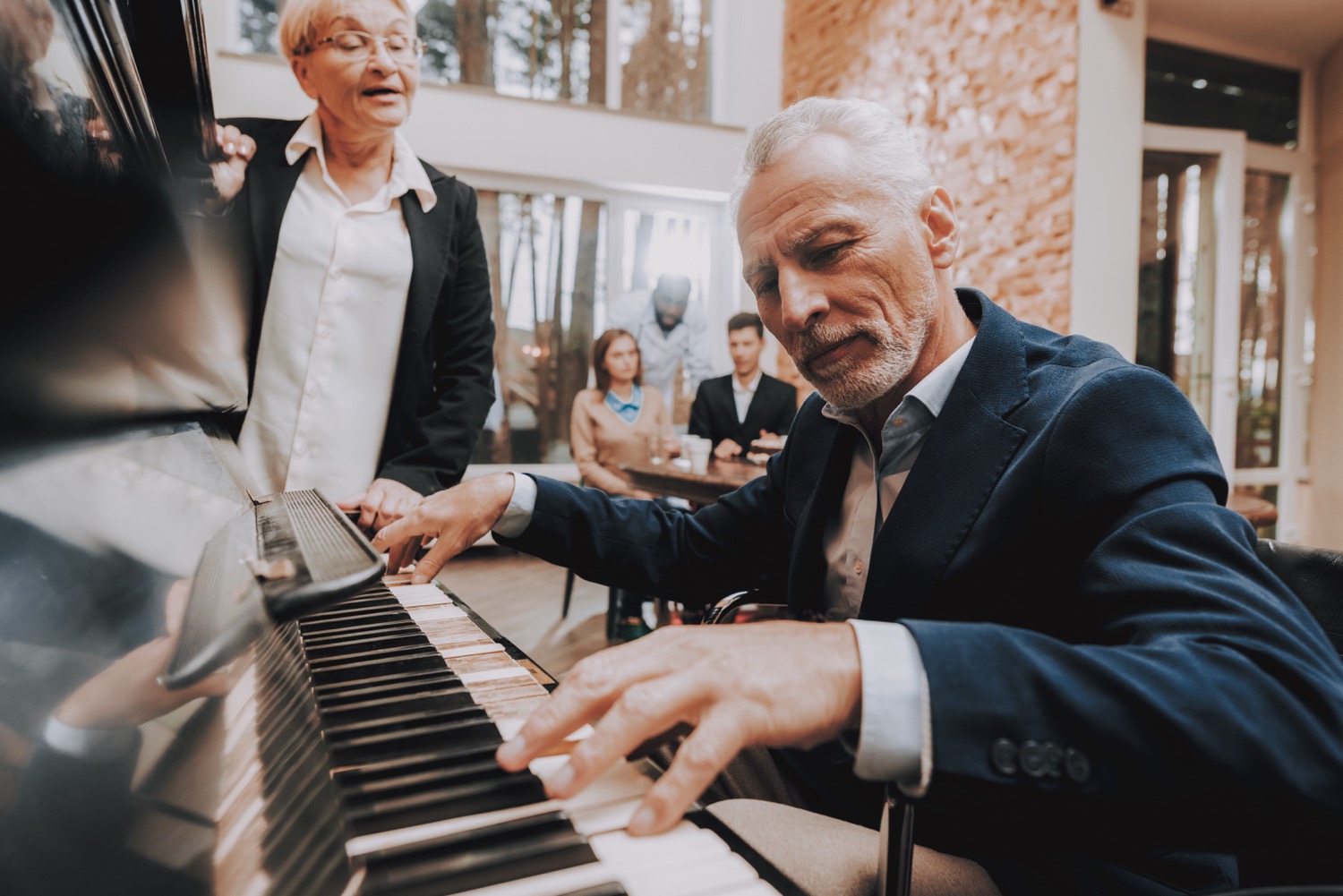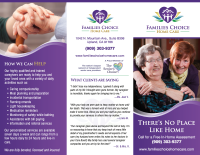
Have you noticed cognitive changes in an elderly parent or family member? Do they seem more confused or forgetful than usual? These could be early signs of dementia, a condition affecting over 50 million people worldwide.
With dementia cases on the rise, families urgently need viable treatment options. Music therapy is emerging as a promising approach to ease anxiety and agitation in patients. Learning about this innovative option may help caregivers support their loved ones better.
If you think your loved one may have Alzheimer’s disease or another form of dementia, this guide is for you. Read on to learn more about groundbreaking music therapy techniques to improve the quality of life of those with dementia.
Alzheimer’s and Other Dementia Types
Alzheimer’s is surprisingly prevalent. Currently, 5.8 million Americans are living with the disease. Experts predict that cases will rise to 14 million by 2050. Globally, more than 50 million people are living with some form of dementia.
Alzheimer’s
Every form of dementia impacts memory, behavior, and the ability to function independently. However, Alzheimer’s is the most common type of dementia, accounting for 60-80% of all cases. It involves a build-up of the brain’s amyloid plaques and tau tangles, leading to cognitive decline over time.
Until recently, researchers could not pinpoint the cause of Alzheimer’s, even with millions of new cases yearly. Recent studies hint at bacterial infection as a possible cause of Alzheimer’s disease. Yet, we still lack a cure.
Alzheimer’s affects people by gradually reducing neuron activity in their brains. This process could eventually make them unable to walk, talk, or even swallow food.
Dementia With Lewy Bodies
Dementia with Lewy bodies has received a lot of press in the last few years, especially ever since Robin Williams passed away. Doctors had diagnosed him with Lewy body dementia. But what does that diagnosis mean?
Lewy body dementia is a disease where protein deposits build up in the brain. It can be challenging to diagnose because it resembles schizophrenia, Alzheimer’s, and Parkinson’s.
Some symptoms of Lewy body dementia are muscle stiffness, extreme confusion, and hallucinations.
Creutzfeldt-Jakob Disease
Researchers consider Creutzfeldt-Jakob disease a rare but serious neurological condition that is a form of dementia. It leads to rapid cognitive decline, with most patients succumbing within a year.
Common symptoms of Creutzfeldt-Jakob disease are memory loss, confusion, and personality changes. While the disease is rare, it’s worth taking the time to screen for it. People often mix up Creutzfeldt-Jakob disease with “mad cow” disease, but these two diseases have no relation.
Frontotemporal
This type of dementia damages the frontal and temporal lobes of the brain, impacting behavior, personality, and language abilities. Patients often exhibit dramatic personality changes and inappropriate social behavior in the early stages. Caring for those with frontotemporal dementia requires extra support as the condition progresses.
Early Signs of Cognitive Decline
We’ve all had “senior moments.” We walk into a room and forget what we went in for. Or we’re talking to a lifelong friend and call them the wrong name.
True dementia runs much deeper than momentary confusion or slips of the tongue. Dementia symptoms can be subtle at first, but grow over time until they affect everyday life.
Early symptoms to watch for include:
- Getting lost in familiar places
- Forgetting directions or how to turn on the car
- Not remembering the day, date, season, or passage of time
- Depth perception difficulty (e.g., accidentally and regularly breaking dishes and cups)
- Frequently dropping or breaking items
- Increased irritation or isolation
With Alzheimer’s disease in particular, research has shown a connection between music and memory. Although music therapy isn’t a cure, it may help manage symptoms and improve the patient’s quality of life. Let’s take a deeper look.
How Does Music Therapy Help Alzheimer’s?
Many Alzheimer’s patients experience high anxiety. This is due to their impaired memory, disorientation, and reduced ability to interact with their surroundings. Researchers have found that music helps diminish this anxiety, enhances subjective memory function, and improves cognitive performance.
Music acts as an anchor, helping to secure someone suffering from cognitive impairment in a sea of disorientation. It activates the salience network, which is how the body decides what sensory input is important and what isn’t.
Even if someone hasn’t heard a piece of music in a long time, that neural network remains in place. It lights up like a Christmas tree when it encounters that melody again. Gaining access to positive long-term memories can help people with Alzheimer’s feel calmer and more in control.

Music, singing, and dancing activate the hippocampus, which is the part of the brain that holds onto long-term memories. It acts as a time machine by transporting us back to different points in time and places we’ve been. It does so by activating other areas of the brain simultaneously.
Many scientific studies are now exploring the link between music therapy and Alzheimer’s disease. Because of this, more nursing homes have started incorporating music into their activity programs.
How Music Affects the Brain
Neuroscientists have been making exciting discoveries in studying how music impacts the nervous system. Professors Amee Baird and Severine Samson from the University of Newcastle in Australia published a study on the effect of popular music on severely brain-damaged patients.
It was the first study to focus on music-evoked autobiographical memories (MEAMs). Researchers studied patients with brain injuries rather than those with Alzheimer’s or dementia. They also played popular music for people without brain damage as a control group.
Surprisingly, a patient with a head injury reported the highest number of MEAMs. They could recall a particular person or event when hearing the song. They also reported having fond feelings towards that piece of music.
Another study from UC Davis shows how listening to music affects the brain. Hearing a familiar piece of music activates a complex series of neural networks and systems. It also indicates why those who have Alzheimer’s may react so strongly to the music they hear.
The UC Davis study shows that the prefrontal cortex area of the brain processes music. This is the region right behind the forehead. It’s also one of the last areas impacted by Alzheimer’s disease. Therefore when a person afflicted with Alzheimer’s hears a familiar melody, it can conjure the image of someone’s face or a particular moment in their past.
Music Therapy and Middle-Stage Alzheimer’s
Middle-stage Alzheimer’s disease is when things tend to get complicated. The middle stage is often when patients begin to lose functioning in earnest, which is terrifying and frustrating for them and their loved ones.
Patients adept at playing an instrument may retain that ability well into the middle stage of Alzheimer’s Disease. But at a certain point, they may begin to forget things or lose the ability to read music. This is a disturbing occurrence for an Alzheimer’s patient or any music lover, for that matter.
Music can be an effective distraction as a patient slips further into the middle stages of Alzheimer’s. Some caretakers will sing to their patients while taking them out for exercise, which prompts them to work out longer. Adding music to a patient’s interests and routine also helps them stay mentally engaged for a longer period of time.
Music interventions also help enhance a patient’s mood and regulate their sleep patterns. Alternative Therapies in Health and Medicine published a study where 20 male patients with Alzheimer’s participated in music therapy five times a week for four weeks.
The patients had a significant boost in melatonin after four weeks, and their melatonin levels stayed at a higher rate for up to six weeks after the conclusion of the music therapy sessions. The researchers also noted an improved ability to learn new songs and lyrics, an increased willingness to socialize, and a more relaxed and improved mood.
What You Can Do to Help
If you’re helping someone cope with Alzheimer’s, you should consider working music therapy into your treatment plan. If they enjoy singing or playing an instrument, encourage them to keep up with it. This is particularly true in the early stages of Alzheimer’s.
Research has shown that patients who have dementia are still able to recall words and melodies. Playing their favorite songs and singing along will help slow cognitive decline. Consider creating a few playlists of popular music from their past.
Staying active also motivates patients because it shows them that they can still lead meaningful lives. This in turn soothes them and makes them feel less anxious, but it also activates memory centers that slow down the atrophy.
Additional Alzheimer’s Therapies
A few other simple therapies could help with symptoms if your family member has the inclination. For example, coloring can help connect both hemispheres of the brain. It lowers our “fight or flight” response and acts like meditation, relaxing and soothing our subconscious.
If coloring isn’t possible, try sitting outside in nature for half an hour daily. You may find that listening to the birds and enjoying the sunshine helps your loved one feel calmer.
Other alternative therapies for Alzheimer’s include acupuncture, aromatherapy, and regular therapeutic massage. Some people also take vitamins and follow a diet high in calcium and vitamin D.
However, talk to your healthcare provider before pursuing any non-medical approaches to dementia care. While alternative therapies may help, they should not replace doctor-recommended medical treatment.
Incorporate Music Therapy Into Your Care Plan
As you explore the connection between music and Alzheimer’s, the internet could become your best resource. Not only can you find “golden oldies,” but you can also find free classic movies and even old radio programs.
Give musical therapy a try at different times of the day when taking care of your loved one. An upbeat tune could be a great start to the day, while relaxing classical or jazz could be best for the evening.
If your loved one is a nursing home resident, talk to the staff about their musical therapy program. The nursing home may not have a formal music program, but staff can still play music daily for your family members.
Support for Those Caring for Loved Ones
Caring for a loved one with Alzheimer’s presents many challenges. While music therapy can provide helpful benefits, families need knowledgeable partners who can help provide the best care for people with dementia.
Families Choice Home Care has extensive experience assisting older adults and their caregivers. Our in-home services range from cooking and cleaning assistance to personal care, companionship, and specialized therapies.
We’ll incorporate music into daily routines or develop activities tailored to your loved one’s needs and abilities. Our team brings compassionate understanding and proven expertise in Alzheimer’s dementia care.
Contact us below to learn more about our personalized in-home care services.





